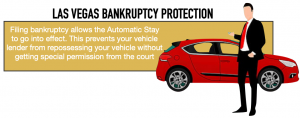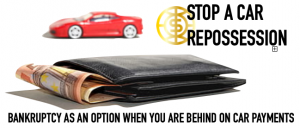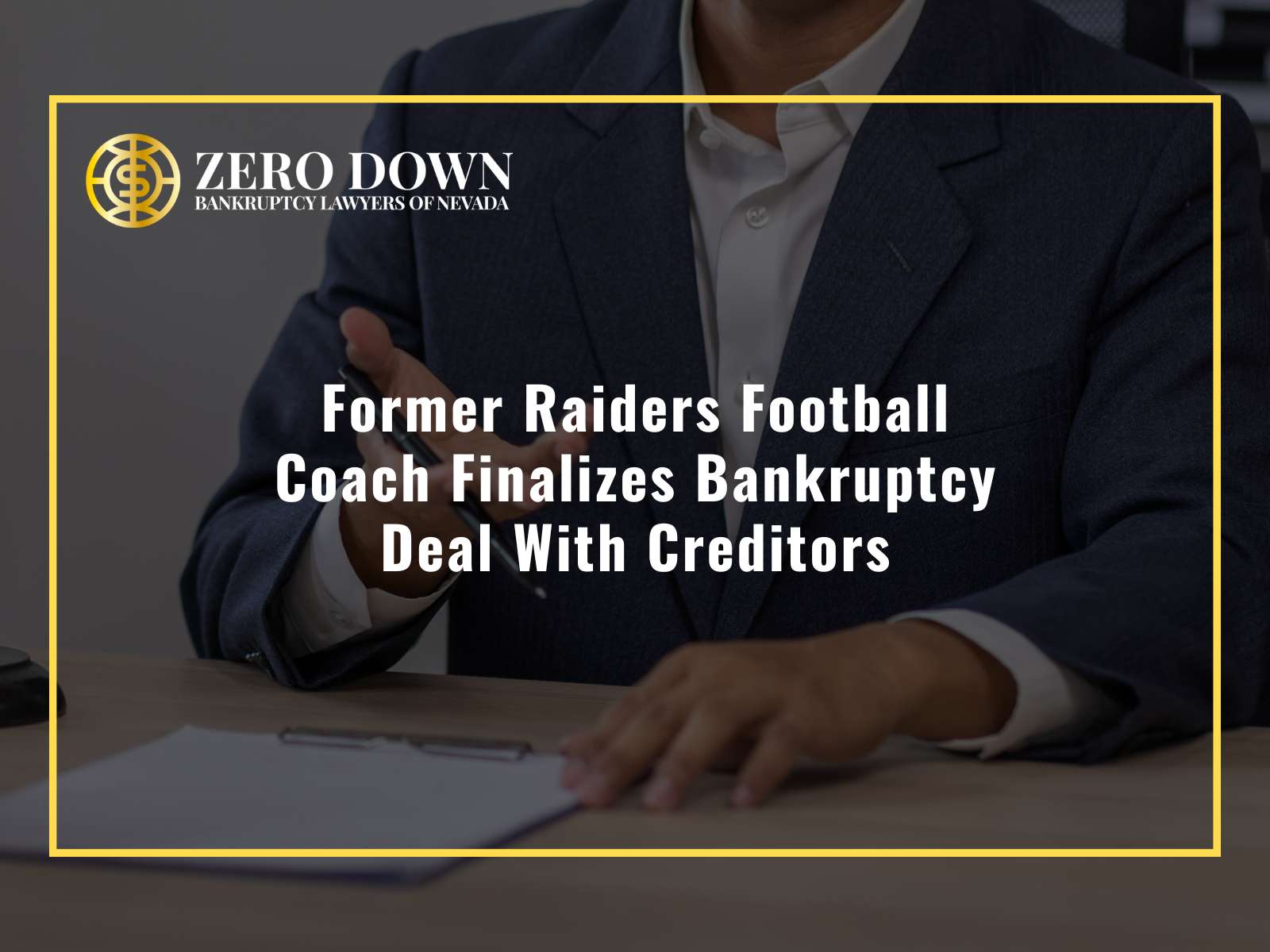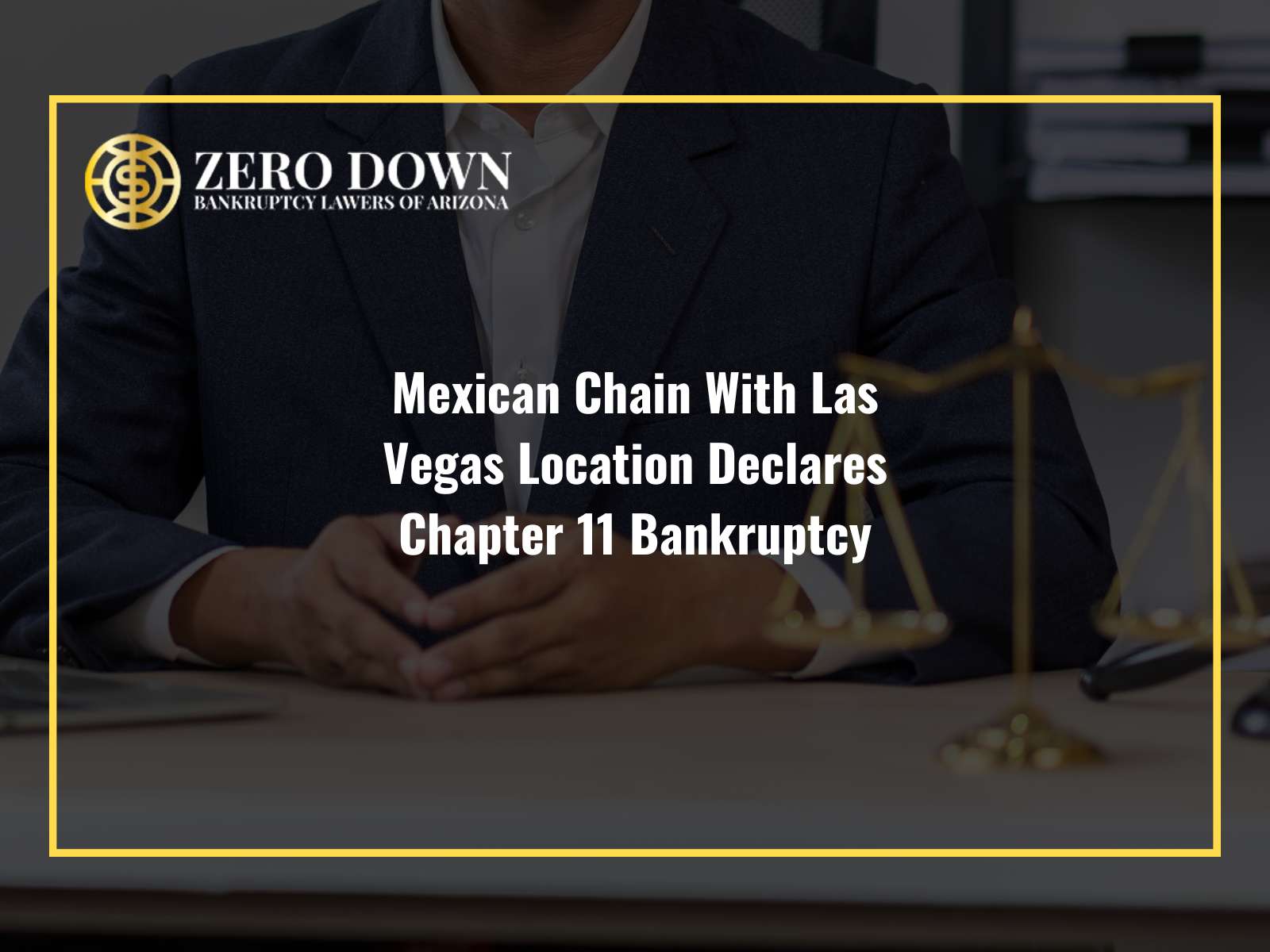Bankruptcy When You are Behind on Car Payments
 Due to Arizona’s heat and limited public transportation systems, having a car is basically necessary, especially for those who are employed. Missing more than a few car payments will typically end in a lender repossessing your vehicle, so a car payment is typically one of the last debts those struggling with debt will fail to pay. If you are behind on your car payments and your vehicle lender is threatening to repossess, it may be time for you to consider filing for bankruptcy.
Due to Arizona’s heat and limited public transportation systems, having a car is basically necessary, especially for those who are employed. Missing more than a few car payments will typically end in a lender repossessing your vehicle, so a car payment is typically one of the last debts those struggling with debt will fail to pay. If you are behind on your car payments and your vehicle lender is threatening to repossess, it may be time for you to consider filing for bankruptcy.
The Automatic Stay
One of the most important features of a bankruptcy is the Automatic Stay of Protection. The Automatic Stay prevents your vehicle lender from repossessing your vehicle without getting special permission from the court. The stay will last until your case is closed, either through dismissal or discharge. Additionally, your lender may file a Motion for Relief from the Automatic Stay to circumvent the protections it provides, but the court will still need to grant this motion, which takes time.
Chapter 13 When You are Behind on Your Payments
 If you can typically afford your vehicle payments and special circumstances caused you to file behind, Chapter 13 is a good way for you to catch up and avoid your vehicle being repossessed. Depending on your income level, your debts will be reorganized into a 3-5 year repayment plan. The past-due balance of your vehicle, along with the entire balance on the loan, will be paid in full in the plan.
If you can typically afford your vehicle payments and special circumstances caused you to file behind, Chapter 13 is a good way for you to catch up and avoid your vehicle being repossessed. Depending on your income level, your debts will be reorganized into a 3-5 year repayment plan. The past-due balance of your vehicle, along with the entire balance on the loan, will be paid in full in the plan.
Some debts will also be paid in full in the plan, while others will only include the minimum payments for the debt that would be required outside of bankruptcy. Other debts may only be paid partially in the plan, like credit cards and medical debts. At the end of the plan, remaining debts will be discharged and any vehicles included in the plan will be paid in full and owned outright. There is no reason for a judge to grant a lender’s Motion for Relief when Chapter 13 payments are made.
Chapter 7 When You are Behind on Your Payments
Chapter 7 Bankruptcy discharges many unsecured debts without the filer being required to repay anything. It will not discharge the debt associated with a financed vehicle that the filer intends to keep. A Chapter 7 typically does not last longer than 6 months. The filer will only have however long the bankruptcy lasts to catch up on their vehicle payments. The filer will not be protected from repossession if they fall behind on their payments after the bankruptcy. Another disadvantage is that the lender will no longer have to positively credit report timely payments towards the vehicle’s balance. They can continue to report negatively, meaning keeping the vehicle can only hurt your credit, and not help it.
That doesn’t mean that filing Chapter 7 is useless when you are behind on vehicle payments. Chapter 7 provides the option of surrendering your vehicle in the bankruptcy. If you were struggling with your payments before the bankruptcy, this is often a wise option. Chapter 7 filers can often finance a vehicle as soon as the day after their bankruptcy is filed. Your attorney will likely have referrals to car vendors who specialize in working with bankruptcy filers.
It should also be noted that exemptions apply in Chapter 7 Bankruptcy. In Arizona, a Chapter 7 filer may only have $6,000 in equity in one vehicle. Otherwise, the vehicle will be sold and excess proceeds will be split among the creditors. The exemption increases to $12,000 for one vehicle or $6,000 each in two vehicles if the filer is married. Exceptions apply to those who need specialized vehicles due to a disability.
Qualifying for Both Chapters
Because of the immense benefits that Chapter 7 provides, it is reserved for those who really need it based on their income and resources. There are two ways to prove you qualify for Chapter 7 based on income. The first way is by making less than Arizona’s median income. That median starts at $52,319 for a single filer and goes up for each minor child the filer has, and if they are married. If the filer makes more than that, they will need to use the Means Test to qualify. The Means Test involves averaging your income and deducting mandatory, court-approved expenses. If these calculations produce a negative number, you will qualify for Chapter 7. You should consult with an attorney to conduct a Means Test for you.
Don’t Wait For the Repo Man!
If you are behind on vehicle payments, don’t wait until the repo man is knocking at your door to start considering bankruptcy. Our Vegas bankruptcy office offers free telephonic consultations so you can discuss your options and weigh the pros and cons with a knowledgeable professional. The only way to get started is by picking up the phone, or by submitting a request through our website. Contact us today!







